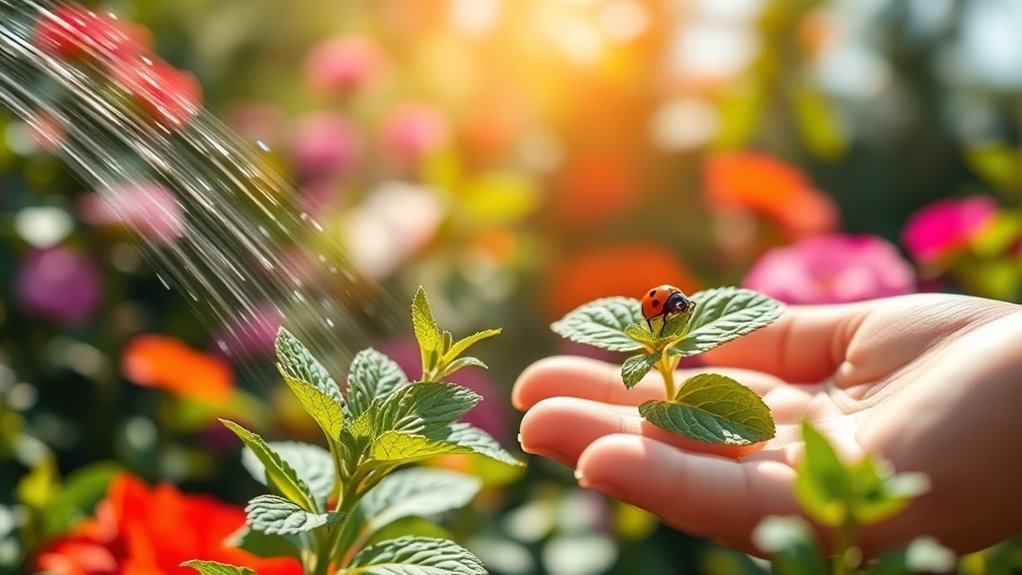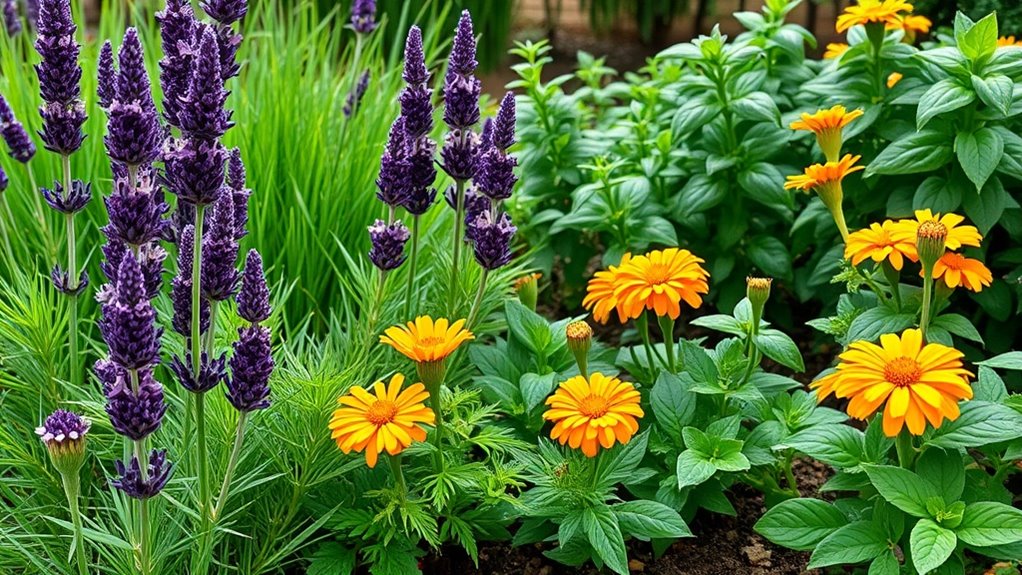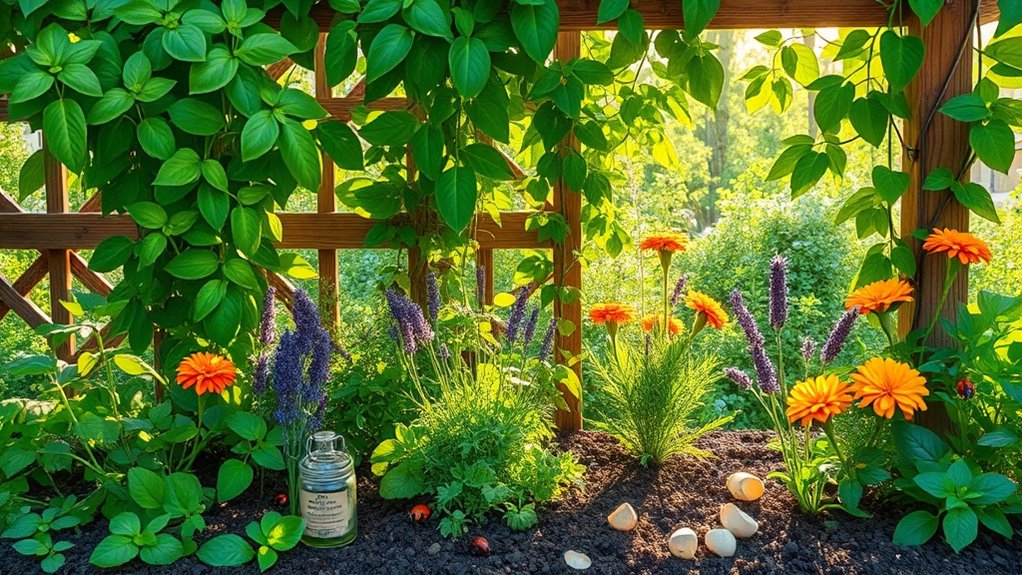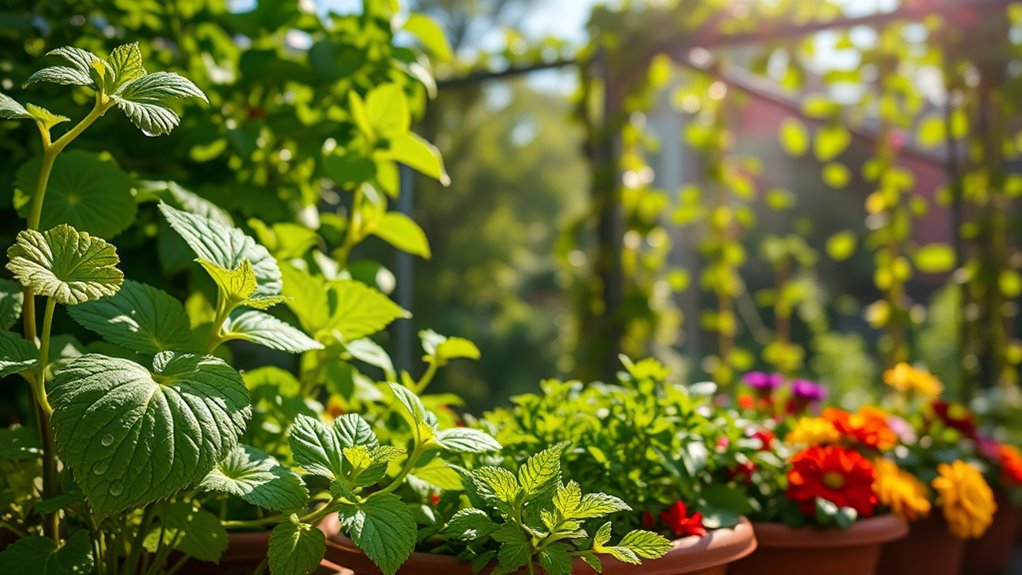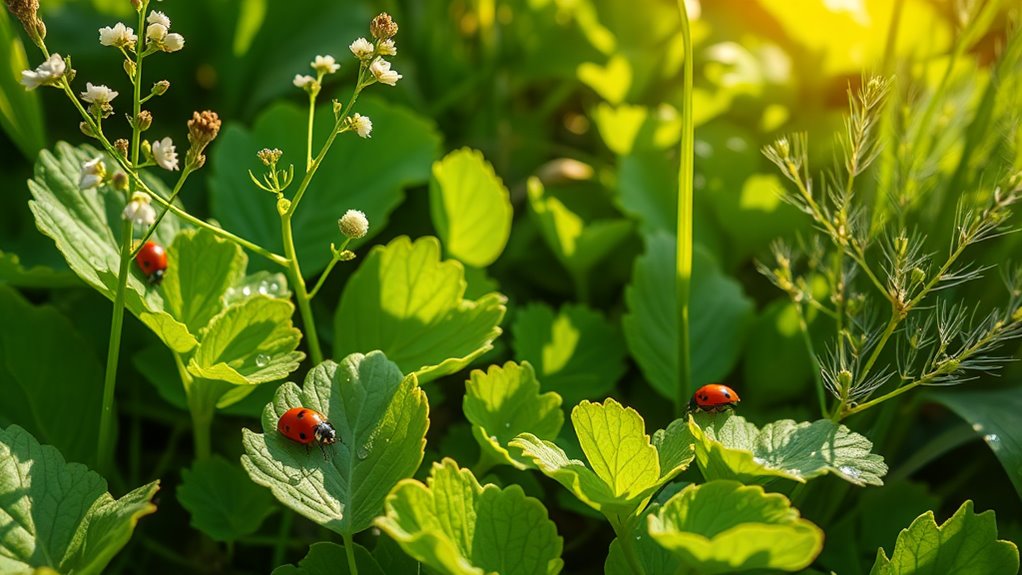How to Get Rid of Aphids Without Chemicals
Imagine stepping into your garden and spotting a patch of plants infested with aphids, with their sticky honeydew coating the leaves. You might feel helpless, but you don’t have to resort to harsh chemicals. There are several effective, natural strategies to tackle this issue, some of which involve harnessing nature’s own pest controllers. It’s worth exploring these methods further to transform your garden into a thriving, chemical-free haven.
Understanding Aphids and Their Impact
While you might enjoy a vibrant garden, aphids can quickly turn that vitality into a struggle.
These tiny pests suck plant sap, leading to wilted leaves and potential disease.
To manage this issue, focus on aphid control naturally.
Introduce plants like marigolds or use soapy water sprays, which can disrupt their feeding habits and help protect your garden’s health without harsh chemicals. Regular monitoring of plants is essential to catch these pests early and effectively manage their populations.
Introducing Beneficial Insects
By incorporating beneficial insects into your garden, you can create a natural balance that helps control aphid populations effectively.
Here are three excellent allies to consider:
-
Ladybugs – They feast on aphids, consuming up to 50 a day.
-
Lacewings – Their larvae are voracious aphid hunters.
-
Parasitic wasps – They lay eggs inside aphids, ultimately killing them.
Introducing these insects can also support a harmonious ecosystem in your garden and watch your aphid problem diminish.
DIY Natural Sprays for Aphid Control
If you’re looking for effective ways to tackle aphids without resorting to chemicals, DIY natural sprays can be a game-changer.
Mix one teaspoon of dish soap with a quart of water for a simple solution. Spray it directly on the affected plants, coating both sides of the leaves. Another option is to use a garlic or chili pepper spray for added potency. Using natural pest control methods minimizes harm to the environment and supports sustainable gardening practices.
Companion Planting Strategies
Companion planting can be an effective strategy in your battle against aphids. By strategically pairing plants, you can naturally deter them.
Here are three combinations to consider:
-
Marigolds with Tomatoes – Marigolds repel aphids and other pests.
-
Nasturtiums with Cabbage – They attract aphids away from your crops.
-
Basil with Peppers – Basil can confuse and repel aphids.
Incorporating these plants boosts your garden’s health, while utilizing a companion planting chart can help further optimize your plant pairings!
Cultural Practices for Prevention
While natural solutions are vital in managing aphid populations, cultural practices play a crucial role in prevention.
To deter aphids, ensure proper plant spacing for airflow, select resistant plant varieties, and maintain healthy soil with organic compost.
Additionally, pruning damaged leaves helps eliminate hiding spots.
Regularly rotating crops can disrupt aphid life cycles, making it harder for them to establish. Incorporating companion planting techniques can further enhance your garden’s resilience against pests like aphids.
Monitoring and Maintenance Tips
Maintaining vigilance in your garden is key to keeping aphids at bay.
Regular monitoring and careful maintenance can make a significant difference.
Here are three essential tips:
-
Inspect plants weekly for any signs of aphid activity.
-
Encourage beneficial insects like ladybugs and lacewings.
-
Maintain healthy plants through proper watering and fertilization.

